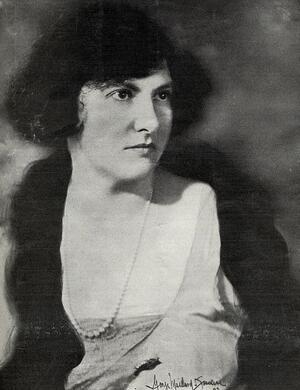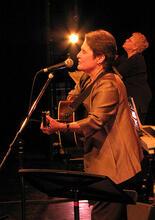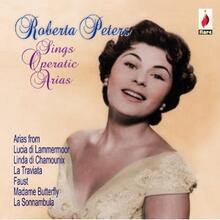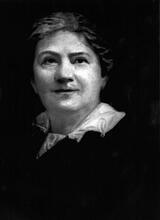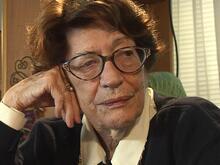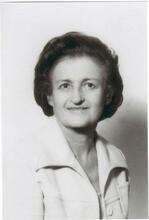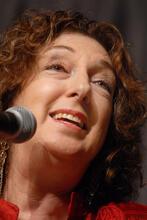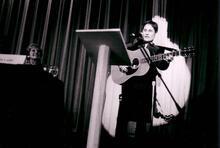Marion Eugénie Bauer
A modernist composer who experimented with dissonance, serialism, and complex harmonies, Marion Eugénie Bauer also made strides for women through her musical scholarship that revived interest in female composers. Bauer studied music in New York and Europe before joining the faculty of New York University in 1926, where she taught composition and music history. She also began teaching at Juilliard in 1940 and lectured widely on music. Bauer’s compositions were alternately hailed and criticized for their complexity and modernist qualities. She edited the journal Musical Leader and published several books on music’s past and present for both musicians and general readers, highlighting often-overlooked female composers. She helped found the American Music Guild, the Society of American Women Composers, and the American Composers Alliance, among other organizations.
An energetic champion of contemporary music, Marion Eugénie Bauer’s work as a writer, teacher, and music advocate augments—perhaps even overshadows—her importance as a composer. Like many women composers of her generation, she focused her initial compositional activity on songs and piano solos. During the 1930s and 1940s, she completed several of her largest compositions.
Early Life and Family
Born on August 15, 1882, in Walla Walla, Washington, Marion was the youngest of seven children (four girls and three boys). The oldest, Emilie Frances (1865–1926), was Marion’s first piano teacher, and she supported Marion both financially and emotionally.
Her parents, Jacques Bauer (d. 1890) and Julia (not Julie as generally given) (Heyman) Bauer, were Jewish immigrants from France. Marion identified her father, band member in the Nineteenth Infantry during the Indian Wars and an amateur tenor, as the source of her interest and talent in music. Jacques Bauer was a storekeeper. Her mother, fluent in seven languages, was a respected educator who taught at Whitman College in Walla Walla (1882–1888) and then privately. Marion’s parents were married at Beth Israel Synagogue in Portland, Oregon, in 1864.
Despite her Jewish roots, Marion Bauer seems to have been nonobservant in her adult life. A former
student, Maurice Peress, maintained that Bauer practiced Christian Science while at New York University; Fredric Stoessel claimed she studied Christian Science “in her final days,, and in a 1923 letter she expressed a desire to publish a song appropriate for Christian Science service.
Although Bauer gave her birth date as 1887 (the date used in virtually all biographical material), the census of 1887 identified Marion as four years old, and an extant birth announcement states that a daughter was born to the wife of J. Bauer on August 15, 1882, in Walla Walla. In 1898 (not 1903 as she claimed), Bauer completed her formal academic education with graduation from St. Helen’s Hall in Portland, Oregon, the private high school where her mother taught German. By 1899, Marion Bauer had moved to New York to live and study with her sister, Emilie, a successful music critic, teacher, and occasional composer. She also studied piano and harmony with Henry Holden Huss. She went to Paris in 1906–1907, where she studied with Raoul Pugno, Louis Campbell-Tipton, Pierre Monteux, and, perhaps most notably, Nadia-Juliette Boulanger, who also taught Aaron Copland and Leonard Bernstein. After returning to New York in 1907, she worked with Walter Henry Rothwell and Eugene Heffley, who remained a guiding musical influence until his death in 1925. Additional study trips to Europe included work with John Paul Ertel in Berlin (1910–1911) and André Gédalge in Paris (1923–1924).
Composition and Teaching
Upon Emilie’s death in 1926, Marion Bauer joined the faculty at New York University, where she taught music history and composition until 1951. In addition to this full-time position, she was affiliated with the Juilliard School from 1940 until her death, and she taught at Mills College, the Carnegie Institute of Technology, and the Cincinnati Conservatory, and offered public lectures about contemporary music during summers. For twelve summers intermittently between 1919 and 1944, the MacDowell Colony for composers, artists, and writers in Peterborough, New Hampshire, provided a supportive atmosphere for composition along with an opportunity to meet other important women composers such as Amy Beach, Ruth Crawford, and Miriam Gideon.
Despite brief experiments with twelve-tone writing in the 1940s and 1950s, her music rarely ventures beyond extended tonality, emphasizing coloristic harmony and diatonic dissonance. Compositions, often with programmatic titles, are melodic in focus with energetic rhythms. Characterized in the 1920s as a left-wing modernist, by the 1940s her music was viewed as conservative yet well crafted. Bauer was a noted composer during her lifetime: Scores were published, and her music received many performances, including the 1947 premiere of Sun Splendor by the New York Philharmonic conducted by Leopold Stokowski
Legacy
Bauer’s strong support for American music and modern composers is evident in her active organizational affiliations, frequently as the only woman in a leadership position among these groups that included America’s most prominent composers. She was a founding member of the American Music Guild (1921), the Society of American Women Composers (1925), the American Composers Alliance (1937), and the American Music Center (1939); secretary for the Society for the Publication of American Music; and a board member for the League of Composers and the American Composers Alliance. Her final years included recognition with a 1951 Town Hall concert devoted to her music, works featured on a Composers Forum concert in 1954, and an honorary doctorate from New York College of Music in 1954. An important writer about music, addressing both specialists and general readers, she was widely published in journals and the author of five published books.
Marion Eugénie Bauer died on August 9, 1955, in South Hadley, Massachusetts, where a rabbi conducted her memorial service.
Selected Works by Marion Eugenie Bauer
Writings
Musical Questions and Quizzes: A Digest of Information About Music. New York: Putnam, 1941.
Twentieth-Century Music: How It Developed, How to Listen to It. New York: Putnam, 1933.
With Ethel Peyser:
How Music Grew: From Prehistoric Times to the Present Day. New York: Putnam, 1939.
How Opera Grew: From Ancient Greece to the Present Day. New York: Putnam, 1956.
Music Through the Ages: A Narrative for Student and Layman. New York: Putnam, 1932.
For an extensive, detailed listing of Marion Bauer’s compositions, see Adrienne Fried Block and Carol Neuls-Bates, Women in American Music: A Bibliography of Music and Literature (1979). See NAW modern for a bibliography of writings about Bauer up to 1980.
Ammer, Christine. Unsung: A History of Women in American Music (1980).
Edwards, J. Michele. "North America Since 1920," in Women and Music: A History, edited by Karin Pendle (1991), and “Bauer, Marion Eugénie,” The Norton/Grove Dictionary of Women Composers, edited by Julie Anne Sadie and Rhian Samuel (1994).
Fuller, Sophie. The Pandora Guide to Women Composers: Britain and the United States, 1629–Present (1994).
Hisama, Ellie M. “Gender, Politics, and Modernist Music: Analyses of Five Compositions by Ruth Crawford (1901–1953) and Marion Bauer (1887 [sic]–1955),” Ph.D. diss., City University of New York (1996).
Horrocks, Peggy A. “The Solo Vocal Repertoire of Marion Bauer with Selected Stylistic Analyses,” D.M.A. diss. (1994).
NAW modern.
Obituary. NYTimes, August 11, 1955.
Pickett, Susan. Telephone and e-mail communication with the author (June–July 1996).
Stewart, Nancy Louise. “The Solo Piano Music of Marion Bauer,” Ph.D. diss., College-Conservatory of Music, University of Cincinnati (1990).
UJE; WWIAJ (1938); WWWIA 3.
Archives holding significant collections related to Bauer include the Library of Congress, Mount Holyoke College, New York University, New York Public Library, American Composers Alliance, and American Music Center.

